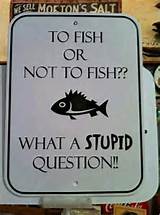
On Wednesday Turn and Talk Blog posted this amazing post about questioning: click here.
As I read the post I immediately thought of a silly question I asked yesterday in 3rd grade. During our minilesson on how to read and think about the material section of how-to directions I pointed to the word optional and I asked:
“Who knows what the word optional means?”
Well, silly me, I got quite a few incorrect answers before one student saved the day!
So, I had to laugh then when I read in the post:
Suddenly, your fast review question that was going to be a ten-second reminder to the class of an old concept has turned into a two minute long moment that left half the class convinced that revision has something to do with peeing in the woods.
Yes, I had fallen into the trap of fishing for a question!
Here is sound advice found in the post about this problem:
One of the moves that can do the most to tighten your minilessons, focus your instruction, and provide time for real talk, reading, writing, and learning is to cut bait on your fishing questions. Fishing questions are like the one above – you know the right answer, the kids know you know the right answer, and the goal is to see if you can fish it out of a child. Kids’ goals are to avoid being called on, to get called on and show off their mind-reading abilities, or to try to ferret out the right answer from hearing their classmates’ missed guesses.
I love this reminder. I know this well. That is why I start every minilesson with a summary statement “Yesterday we…Today I want to teach you…” and not “Who remembers what we learned yesterday?”
So in reflecting on my mishap I could have said:
“Optional means you have a choice to use that material. How many of you chose to use the eraser? How many of you chose not to use the eraser? Tell me why you made that choice.”
Katy (the post’s author) states these types of questions does three things:
- reminds kids of what you mean when you say the word
- invites kids to recall their past experience
- lets you read the room to figure out what this group of kids knows about the topic
The post ends with these helpful tips:
- Before you pose a question to the class, think about what jobs that question will do.
- Consider whether the question is one that is best posed teacher to a single student, with the class listening, or whether it’s one that invites a whole class conversation, or whether it’s a topic perfect for partners to turn and talk about.
- Be ruthless about cutting questions from your lessons. Remember that if you’re looking for one specific answer to a question that sounds like an open-ended question, it is often a fishing question.
- In the moment, if you’re finding yourself flailing to connect kids’ responses to the right answer, or calling on numerous kids to get a response to what should have been a fast review question – cut bait! Tell kids what you’re thinking – usually the definition of a term or a concept you have a particular explanation for – and then change the question so it forces kids to engage with the concept (like giving an example of the term or idea).
Thanks for writing this! I am glad it helped. I can’t even tell you the number of times I have asked questions like that…hence the post 😉
LikeLike